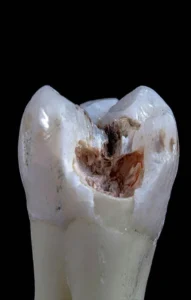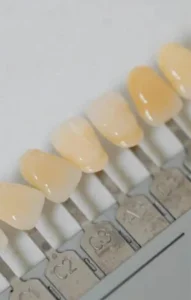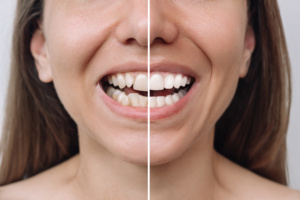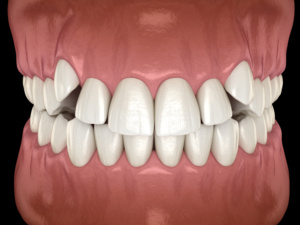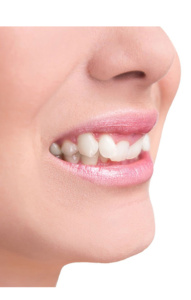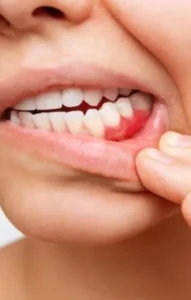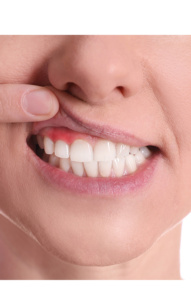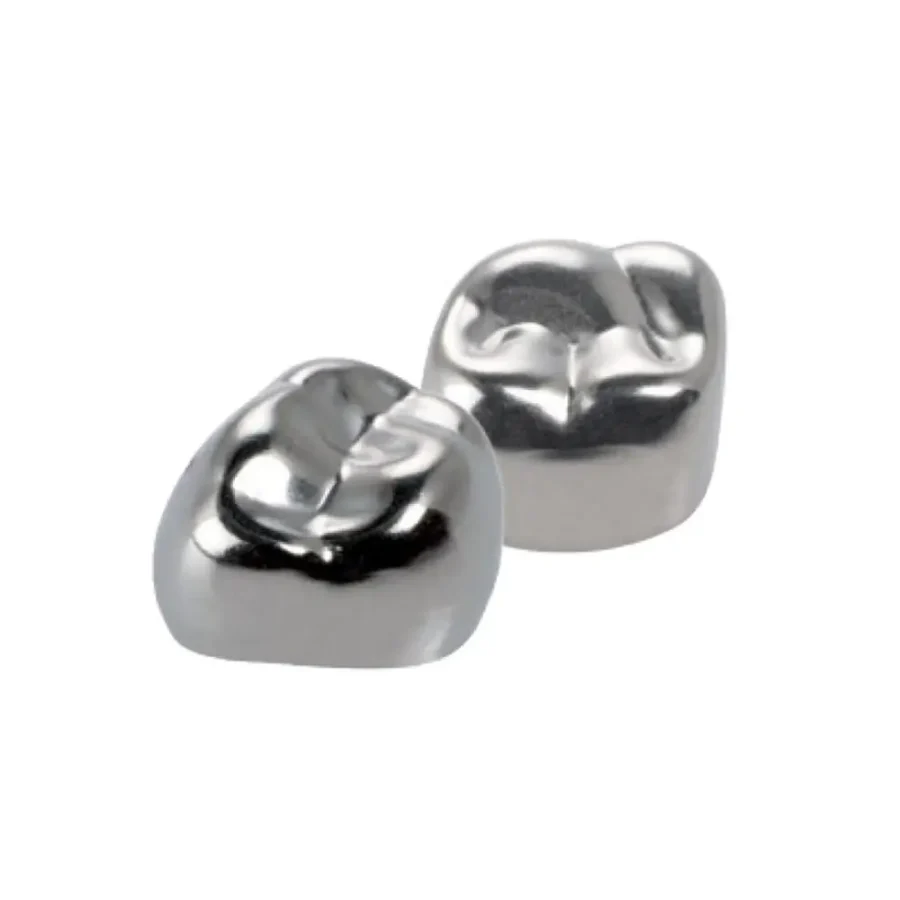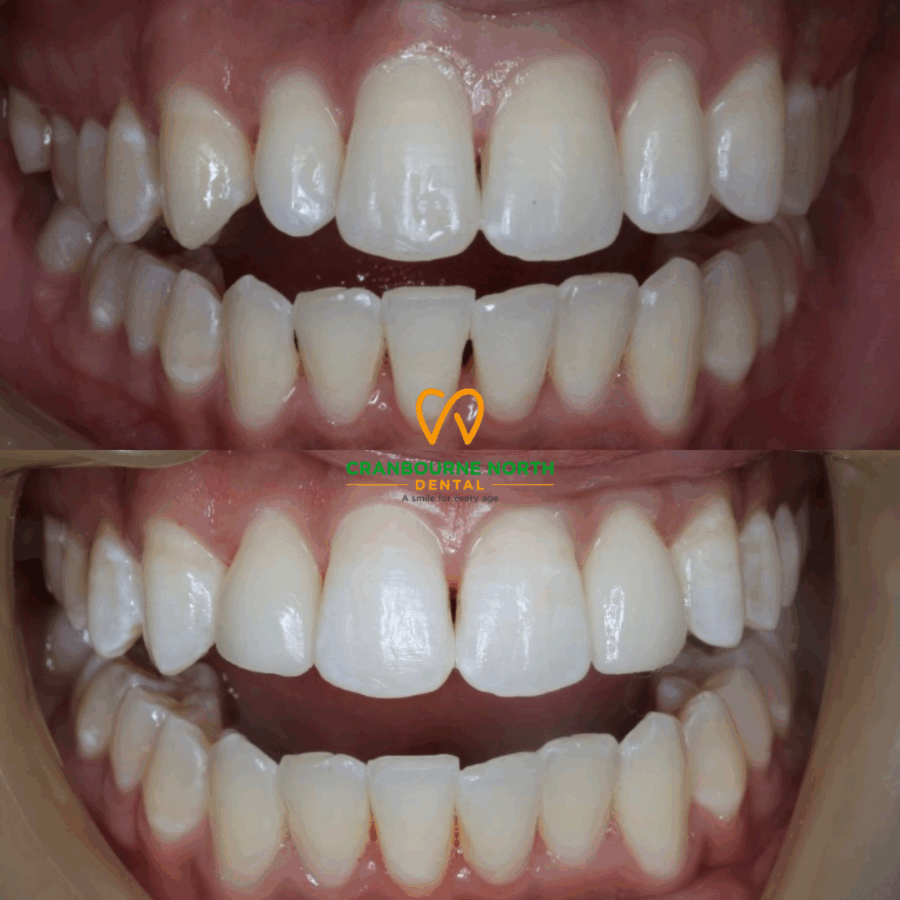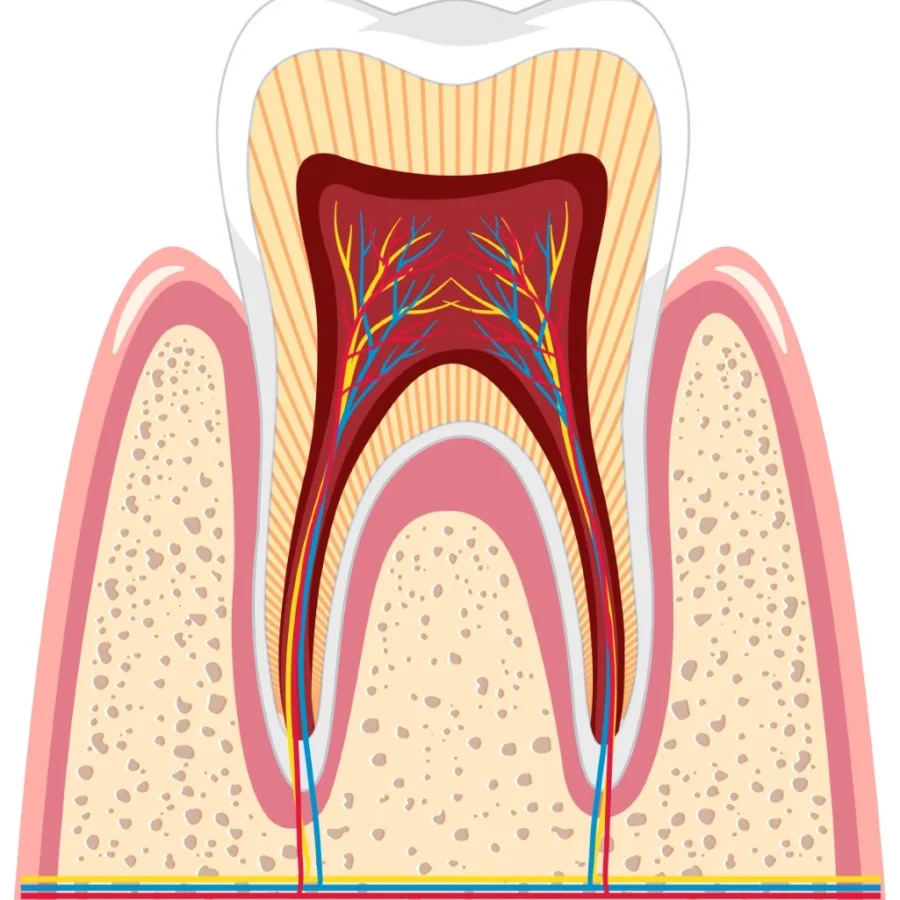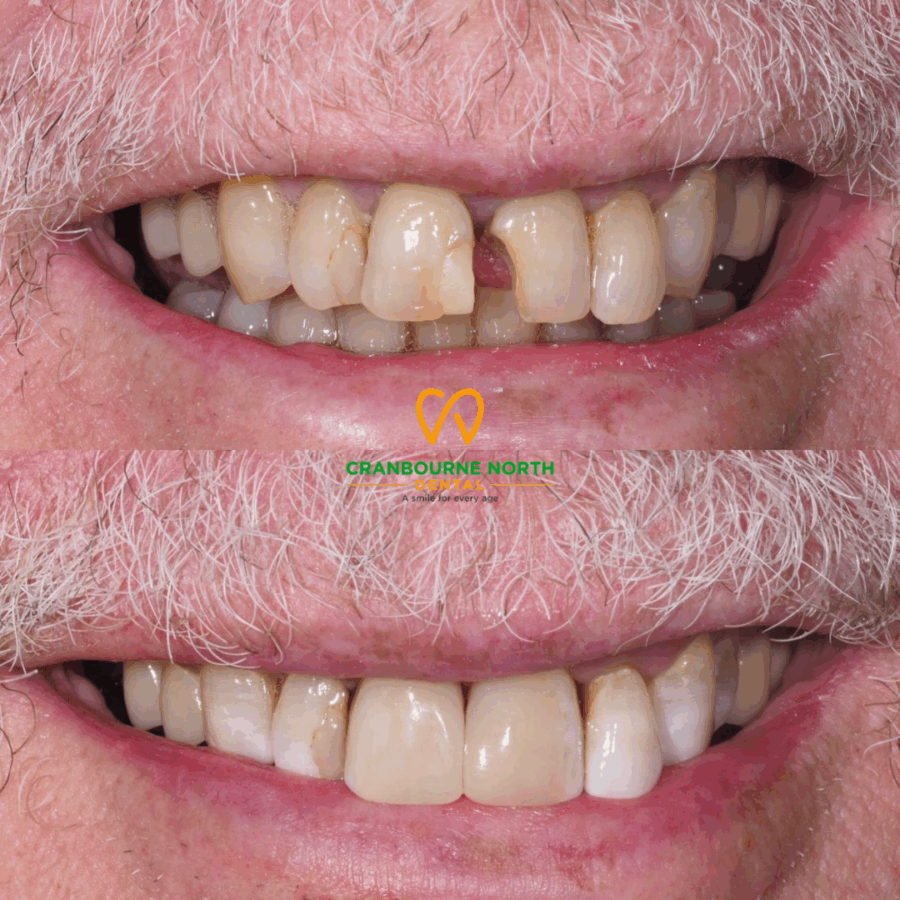
What Is a Dental Crown?
A Dental Crown, commonly referred to as a ‘tooth cap’, is frequently recommended for teeth with various issues such as breakage, extensive fillings, cracks, Root Canal Treatments, or aesthetic concerns.
This procedure involves reshaping the tooth and securely bonding a custom made crown onto it. Different crown options include porcelain crowns, zirconia crowns, full gold/metal crowns and porcelain fused to metal crowns. Crowns effectively enhance the structural strength of the underlying tooth.
Our dental crown services offer all types, and our streamlined process includes the use of a specialised scanner for optimal efficiency.
We also offer Full arch reconstruction or full mouth rehabilitation (FMR) where we use multiple crowns (and bridges) to restore your worn & missing teeth to better than before!
Signs you might need a Dental Crown
Tooth crowns are an excellent solution for teeth that are weak and require some sort of strengthening or improved aesthetics. They are usually recommended when one of the following happens:
- Fractured or cracked teeth
- Loss of tooth structure due to tooth decay
- Heavily filled (large tooth filling) and hence weak underlying tooth structure
- Aesthetic concerns (such as discolouration)
- The tooth has had a root canal (and is hence extremely weak)
- Restoration of a dental implant (tooth on an implant)
Types of Tooth Crowns
A dental crown can be made out one or more of the following materials:
- Monolithic Zirconia (Ceramic) – This Ceramic (technically a metal) has excellent compressive strength and wear ratings for posterior support.
- Lithium Disilicate (Ceramic) – This glass ceramic material (also known as E.max) is extremely popular due to it’s tooth-like aesthetics and ability to be bonded onto teeth.
- Porcelain fused to Metal (PFM) – The traditional way to make crowns and bridges, with excellent long-term reliability.
- Porcelain fused to Zirconia (PFZ) – Using a new-age Zirconia ceramic as the strong base, porcelain is fused on top to improve the aesthetics.
- Gold and metal alloys – All metals have excellent compressive strength and wear ratings. These are the material of choice in heavy teeth grinders.
- Stainless Steel Crowns – These pre-formed metal crowns are primarily used in children, allowing us to fix large cavities and pulpotomies with great success.
Need help with your Dental Crowns?
We have a variety of Payment Plans available – giving you the flexibility of paying for your Dental Crown later.

What happens during a Tooth capping appointment?
For a dental crown on teeth:
- The tooth is shaved into shape and 3D intra-oral scans are sent to our local dental lab.
- Your new custom tooth cap is either milled or constructed and sent back to us in roughly two weeks.
- Your new dental crown is bonded onto your teeth.
For a dental crown on a dental implant:
- The implant connection is exposed and 3D scans or impressions are taken and sent to our local dental lab.
- Your new custom implant crown is either milled or constructed (or both!) and sent back to us in roughly three weeks.
- Your new implant crown is screwed onto your implants.
For a Stainless Steel Crown on Children:
- Hall Crown technique: We place separators are between teeth and a few days later, a pre-formed crown is cemented over the top of the tooth. We generally do not need to use local anaesthetic for this procedure.
- Sealing Pulpotomies: The tooth is prepared just like an adult tooth and a pre-formed crown is cemented over the top of the tooth.
Dental Crown Complications
Some patients may experience complications such as sensitivity. Nerve death and a subsequent need for a root canal occurs in roughly 10-20% of crown and bridge cases. This happens as when teeth require a crown, they are already fairly broken down due to decay or cracks. Others may experience porcelain chipping or even ceramic fracture. Repair may not be possible and replacement of the crown is needed. Hence we recommend that to professionally check and clean your dental caps on a regular basis. Patients who grind their teeth still require a night splint to protect their dental crowns. Remember, all dental restorations have a limited life-span and will require eventual replacement – nothing can truly survive the hostile mouth environment – not even your teeth!
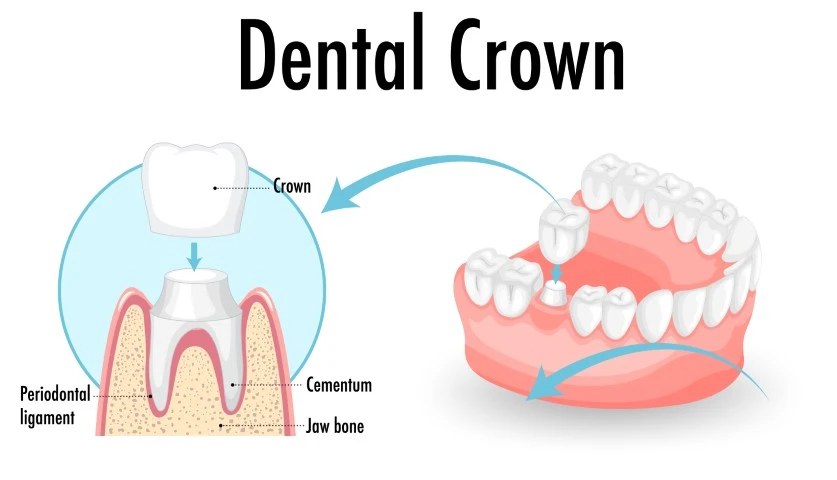
Call Us or Book Online Now
Common Problems
Frequently Asked Questions
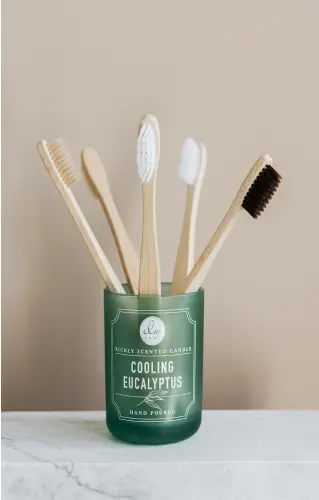
Why Do My Teeth Keep Breaking?
There are many reasons why teeth break
- Decay– if a tooth has decay, it weakens it and it can break easily
- Grinding/clenching teeth– this can result in cracks/fracture lines in teeth that can give way
- Heavily filled teeth- if the teeth have had existing large fillings, the teeth are weaker and more susceptible to fracture. In most situations, a crown would be the best option to brace the heavily filled tooth.
Why Are Crowns So Expensive?
When a tooth is heavily filled/cracked/just had a root canal treatment, your dental professional might recommend a crown on the tooth. Then you hear the price and then, Why does it cost so much?
A crown on a tooth is akin to a customised piece of jewellery. The tooth is prepared precisely and a scan or mould is taken and a specialised dental laboratory creates the crown to fit the exact shape of your prepared tooth! It is entirely custom made and extremely precise to ensure a great result. The materials are also highly specialised and can be made from zirconia, porcelain, gold and other materials. Because of all the steps involved, materials and the time taken, a crown can be more expensive. It is also a much better long-term option for your tooth.
How Long Do Dental Crowns Last?
Dental crowns can last between 10 to 15 years, depending on the material used and how well they are cared for. Contact us for regular dental check-ups to maintain good oral hygiene and extend their lifespan.
Can I Whiten My Crowns or Bridges?
Crowns and bridges cannot be whitened like natural teeth. If you’re considering teeth whitening, it’s best to do so before getting a crown or bridge to match the colour of your natural teeth. Book your whitening treatment now.
Do Dental Crowns Require Special Care?
Crowns do not require special care beyond good oral hygiene practices, such as brushing twice daily, flossing, and regular dental check-ups. Avoiding hard foods can also prevent damage to the crowns.
How Do I Know if I Need a Dental Crown?
You might need a dental crown if you have a cracked tooth, a large filling, severe tooth decay, or after a root canal treatment. Your dentist will recommend a crown if it’s the best option for protecting and strengthening your tooth. Contact us for a dental check-up today.

